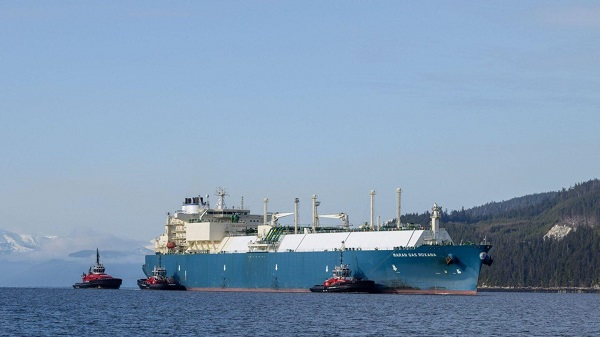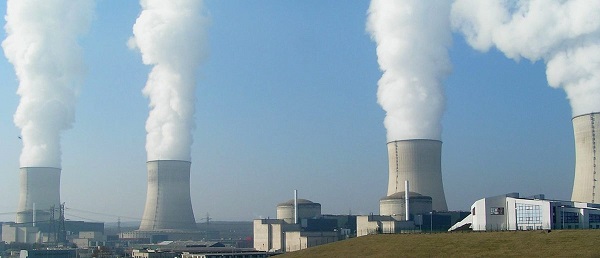Alberta
Edmonton man connected to U.S. child sex abuse investigation

News release from the Alberta Law Enforcement Response Team (ALERT)
An Edmonton man is facing child sexual exploitation charges following an Internet Child Exploitation (ICE) investigation.
In August 2024, ALERT’s Internet Child Exploitation (ICE) unit received information from U.S. Homeland Security Investigations (HSI) that linked an Edmonton man to an investigation in Florida. Trevor Smiley, 54 years old, is charged with making, transmitting, accessing and possessing child pornography.
Smiley had allegedly been in conversation and shared child sexual exploitation material with Florida suspect, Jason Davis, 41 years old of Cooper City, Fla. Davis was arrested on July 31, 2024 and appeared in court the following day as part of an HSI and South Florida Internet Crimes Against Children taskforce investigation.
The U.S. investigation allegedly uncovered large-scale, online group chats dedicated to sharing images and videos showing the sexual abuse of children. The investigation also led to the arrest of a Massachusetts man.
ICE arrested Smiley on August 28, 2024 and executed a search warrant at his Edmonton home. Various electronic devices were seized for forensic analysis.
“It’s incredibly concerning to see these acts happening in our community, and even more so when we understand the connections of the people involved. Our forensic technicians are combing through the seized devices and while our investigation continues, we’re asking that anyone that has information to come forward,” said Sgt. Randy Poon, ALERT ICE.
Anyone with information this investigation or any child exploitation situation is asked to contact their local police, or to report their concern anonymously to Crime Stoppers (1-800-222-TIPS).
Smiley’s next scheduled court appearance is on September 5, 2024.
ALERT was established and is funded by the Alberta Government and is a compilation of the province’s most sophisticated law enforcement resources committed to tackling serious and organized crime.
Alberta
As LNG opens new markets for Canadian natural gas, reliance on U.S. to decline: analyst

From The Canadian Energy Centre
By Cody Ciona
Starting with LNG Canada, producers will finally have access to new customers overseas
Canada’s natural gas production and exports are primed for growth as LNG projects come online, according to Houston, Texas-based consultancy RBN Energy.
Long-awaited LNG export terminals will open the door to Asian markets and break the decades-long grip of the United States as the sole customer for Canada’s natural gas.
RBN projects that Canada’s natural gas exports will rise to 12 billion cubic feet per day (bcf/d) by 2034, up from about 8 bcf/d today. But as more LNG terminals come online, less of that natural gas will head south.
“We think the real possibility exists that the amount of natural gas being exported to the United States by pipeline will actually decline,” said Martin King, RBN’s managing director of North America energy market analysis, on a recent webinar.
RBN’s analysis suggests that Canada’s natural gas exports to the United States could drop to 6 bcf/d by the early 2030s compared to around 8 bcf/d today.
With the first cargo from the LNG Canada terminal at Kitimat, B.C. expected to ship in late June, Canada will finally have access to new markets for natural gas. The first phase of the project will have capacity to ship about 1.8 bcf/d.
And more projects are on the way.
LNG Canada’s joint venture partners are considering a second phase that would double export capacity.
Also at Kitimat, the Cedar LNG project is under construction and is expected to be completed in 2028. The floating terminal led by the Haisla Nation will have capacity to export 0.4 bcf/d.
Woodfibre LNG, located near Squamish, B.C. began construction in late 2023 and is expected to be substantially completed by 2027, with export capacity of about 0.3 bcf/d.
Expansions of LNG Canada and Cedar LNG could put LNG exports into the range of 5 bcf/d in the early 2030s, King said.
Alberta
SERIOUS AND RECKLESS IMPLICATIONS: An Obscure Bill Could Present Material Challenge for Canada’s Oil and Gas Sector

From Energy Now
By Tammy Nemeth and Ron Wallace
Bill S-243 seeks to “reshape the logic of capital markets” by mandating that all federally regulated financial institutions, banks, pension funds, insurance companies and federal financial Crown Corporations align their investment portfolios with Canada’s climate commitments
Senator Rosa Galvez’s recent op-ed in the National Observer champions the reintroduction of her Climate-Aligned Finance Act (Bill S-243) as a cornerstone for an “orderly transition” to achieving a low-carbon Canadian economy. With Prime Minister Mark Carney—a global figure in sustainable finance—at the helm, Senator Galvez believes Canada has a “golden opportunity” to lead on climate-aligned finance. However, a closer examination of Bill S-243 reveals a troubling agenda that potentially risks not only crippling Canada’s oil and gas sector and undermining economic stability, but one that could impose unhelpful, discriminatory measures. As Carney pledges to transform Canada’s economy, this legislation would also erode the principles of fairness in our economic and financial system.
Introduced in 2022, Bill S-243 seeks to “reshape the logic of capital markets” by mandating that all federally regulated financial institutions, banks, pension funds, insurance companies and federal financial Crown Corporations align their investment portfolios with Canada’s climate commitments, particularly with the Paris Agreement’s goal of limiting global warming to 1.5°C. The Bill’s provisions are sweeping and punitive, targeting emissions-intensive sectors like oil and gas with what could only be described as an unprecedented regulatory overreach. It requires institutions to avoid financing “new fossil fuel supply infrastructure” and to plan for a “fossil-free future,” effectively discouraging investment in Canada’s energy sector. To that end, it imposes capital-risk weights of 1,250% on debt for new fossil fuel projects and 150% or more for existing ones, making such financing prohibitively expensive. These measures, as confirmed by the Canadian Bankers’ Association and the Office of the Superintendent of Financial Institutions in 2023 Senate testimony, would have the effect of forcing Canadian financial institutions to exit oil and gas financing altogether. It also enshrines into law that entities put climate commitments ahead of fiduciary duty:
“The persons for whom a duty is established under subsection (1) [alignment with climate commitments] must give precedence to that duty over all other duties and obligations of office, and, for that purpose, ensuring the entity is in alignment with climate commitments is deemed to be a superseding matter of public interest.”
While the applicability of the term used in the legislation that defines a “reporting entity” may be a subject of some debate, the legislation would nonetheless direct financial institutions to put “climate over people”.

There are significant implications here for the Canadian oil and gas sector. This backbone of the economy employs thousands and generates billions in revenue. Yet, under Bill S-243, financial institutions would effectively be directed to divest from those companies if not the entire sector. How can Canada become an “energy superpower” if its financial system is directed to effectively abandon the conventional energy sector?
Delivered to You: It’s Free! Sign Up for the EnergyNow Canadian Energy Focused Newsletter Here
Delivered to You: It’s Free! Sign Up for the EnergyNow US Energy Focused Newsletter Here
Beyond economics, Bill S-243 raises profound ethical concerns, particularly with its boardroom provisions. At least one board member of every federally regulated financial institution must have “climate expertise”; excluded from serving as a director would be anyone who has worked for, lobbied or held shares in a fossil fuel company unless their position in the fossil fuel company was to help it align with climate commitments defined in part as “planning for a fossil fuel–free future.” How is “climate expertise” defined? The proposed legislation says it “means a person with demonstrable experience in proposing or implementing climate actions” or, among other characteristics, any person “who has acute lived experience related to the physical or economic damages of climate change.” Bill S-243’s ideological exclusion of oil and gas-affiliated individuals from the boards of financial institutions would set a dangerous precedent that risks normalizing discrimination under the guise of environmental progress to diminish executive expertise, individual rights and the interests of shareholders.
Mark Carney’s leadership adds complexity to this debate. As the founder of the Glasgow Financial Alliance for Net Zero, Carney has long advocated for climate risk integration in finance, despite growing corporate withdrawal from the initiative. Indeed, when called to testify on Bill S-243 in May 2024, Carney praised Senator Galvez’s initiative and generally supported the bill stating: “Certain aspects of the proposed law are definitely achievable and actually essential.” If Carney’s Liberal government embraces Bill S-243, or something similar, it would send a major negative signal to the Canadian energy sector, especially at a time of strained Federal-Provincial relations and as the Trump Administration pivots away from climate-related regulation.
Canada’s economy and energy future faces a pivotal moment. Bill S-243 is punitive, discriminatory and economically reckless while threatening the economic resilience that the Prime Minister claims to champion. A more balanced strategy, one that supports innovation without effectively dismantling the financial underpinnings of a vital industry, is essential. What remains to be seen is will this federal government prioritize economic stability and regulatory fairness over ideological climate zeal?
Tammy Nemeth is a U.K.-based energy analyst. Ron Wallace is a Calgary-based energy analyst and former Permanent Member of the National Energy Board.
-

 Alberta2 days ago
Alberta2 days agoSERIOUS AND RECKLESS IMPLICATIONS: An Obscure Bill Could Present Material Challenge for Canada’s Oil and Gas Sector
-

 Business2 days ago
Business2 days agoHigh grocery bills? Blame Ottawa, not Washington
-

 Alberta2 days ago
Alberta2 days agoDon’t stop now—Alberta government should enact more health-care reform
-

 International2 days ago
International2 days agoTrump confronts South African president about widespread killing of White farmers in the country
-

 Bruce Dowbiggin2 days ago
Bruce Dowbiggin2 days agoU.S. Voters Smelled A Rat But Canadian Voters Bought The Scam
-

 Daily Caller1 day ago
Daily Caller1 day agoShale Gas And Nuclear Set To Power The US Into The Future
-

 National2 days ago
National2 days agoThe State of Confederation: Provinces are pushing back against federal overreach
-

 National12 hours ago
National12 hours agoBlanket Mandate Letter Worrying Sign For Carney Era


